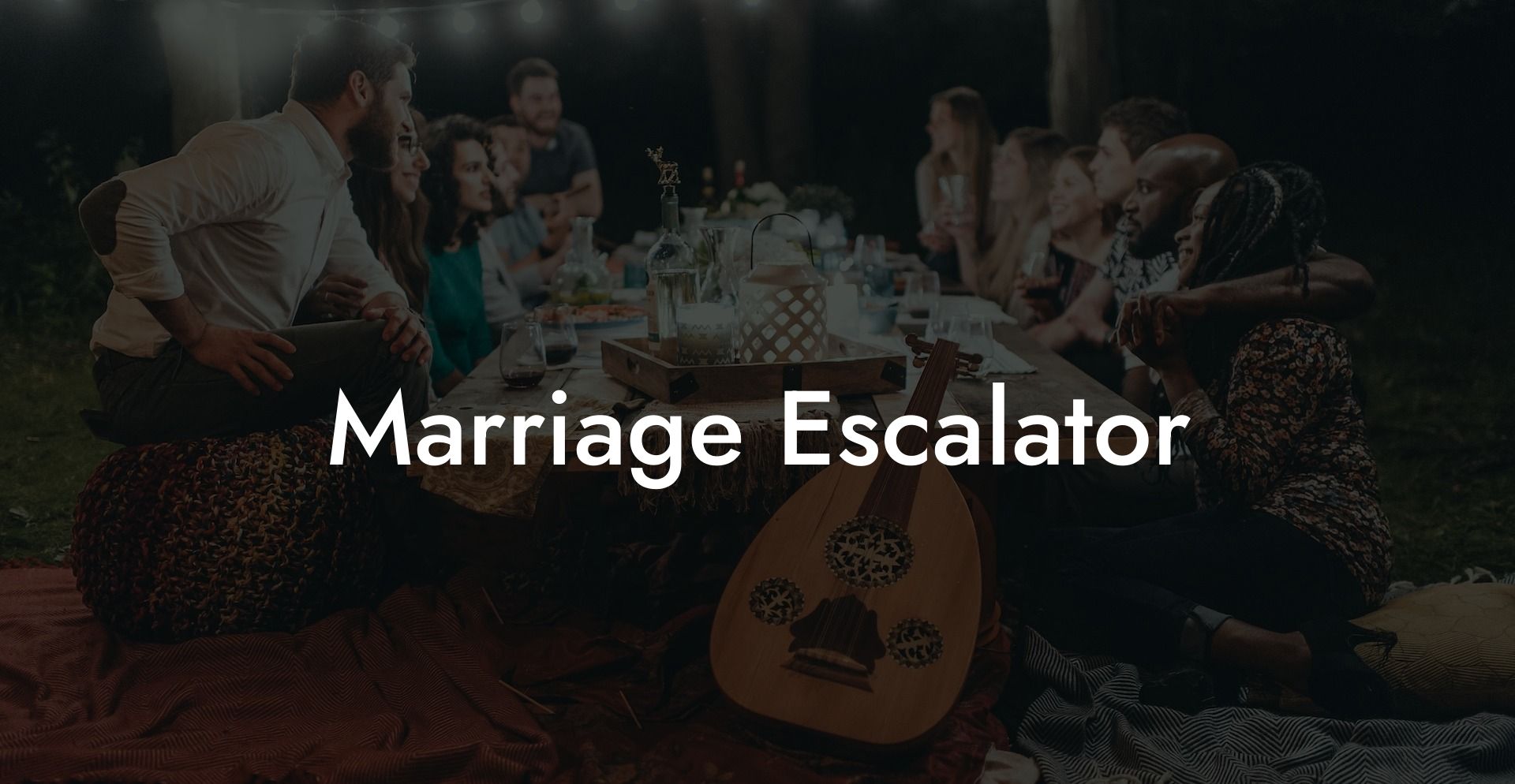In today's world, it's not uncommon for couples to challenge traditional norms when it comes to relationships and marriage. Many are looking beyond the conventional "marriage escalator" and exploring alternative relationship patterns. In this guide, we dive deep into the concept of the Marriage Escalator, discuss its potential drawbacks, and consider alternatives that can create fulfilling and lasting relationships.
Marriage Escalator Table of Contents
Understanding the Marriage Escalator
The Marriage Escalator refers to the traditional and linear path many people believe a relationship should follow. This path typically includes dating, falling in love, moving in together, getting engaged, getting married, having children, and growing old together. It's a concept deeply ingrained in our society and often seen as the ultimate goal in romantic relationships.
The Drawbacks of the Marriage Escalator
Although this conventional approach to relationships has worked for many couples throughout history, it's important to consider the potential downsides it brings:
- Limited Individual Growth: Following the Marriage Escalator can sometimes restrict personal development by prioritizing the relationship's growth over individual growth. This may result in codependence or feelings of unfulfillment.
- Pressure to Conform: Society has high expectations for couples to follow the traditional relationship path, even if that path may not be the best fit for everyone. This pressure can lead to rushed decisions or unhappy partnerships simply because it's seen as the "normal" thing to do.
- Lack of Flexibility: The Marriage Escalator leaves little room for alternative relationship styles, such as polyamory or engaging in an open relationship. Couples who want to explore these options may feel judged or unsupported if they deviate from society's expectations.
Alternative Relationship Pathways
In response to the drawbacks of the Marriage Escalator, many couples are choosing to create their own relationship pathways based on their unique needs, values, and desires. Here are some alternative relationship structures to consider:
Polyamory
Polyamory is a relationship style where individuals can openly engage in multiple romantic and/or sexual relationships with the consent of all involved parties. This approach challenges the traditional monogamous model and allows for greater flexibility in fulfilling emotional and sexual needs.
Open Relationships
An open relationship is a partnership where both partners agree to engage in sexual experiences with others outside of their primary relationship. Although this structure also challenges monogamy, it differs from polyamory as it usually doesn't involve deep emotional connections with external partners.
Relationship Anarchy
Relationship Anarchy is a philosophy that challenges conventional relationship norms by avoiding strict rules or hierarchies. It emphasizes the importance of individual autonomy and free choice, allowing partners to create their own unique pathways to love and commitment.
Long-Term Relationship Without Marriage
Some couples choose to forgo the legal aspect of marriage and maintain a long-term, committed relationship without officially tying the knot. This option allows partners to continue building their lives together while avoiding the potential legal and financial complications associated with marriage.
Marriage Escalator Example:
Meet Sarah and Alex, a couple who decided to challenge the Marriage Escalator and design their own unique relationship path. They began their journey discussing their values and desires, ultimately deciding that a traditional marriage wasn't the best fit for them. Instead, they chose to keep their finances separate, live in separate homes, and engage in a polyamorous relationship style, all while maintaining a strong, loving, and committed partnership.
As you explore the world of alternative relationship paths, remember that the ultimate goal is to create a fulfilling and authentic connection, regardless of what that looks like. Whether you choose to follow the Marriage Escalator, embrace a non-monogamous relationship style, or create your own entirely unique pathway, it's essential to always prioritize honest communication and open-mindedness with your partner(s). We hope this guide has provided you with valuable insights into the Marriage Escalator and its alternatives. If you found it helpful, please share it with others and continue exploring the wealth of resources and guides available at The Monogamy Experiment.













